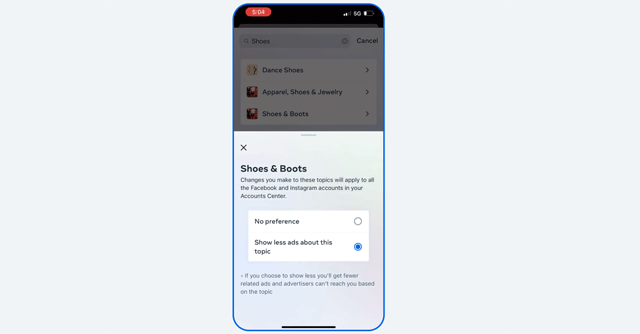
Instagram, Facebook roll out more restrictions to harvesting data of underage users


Meta-owned social media platforms, Facebook and Instagram, on Wednesday, launched more restrictions to the kind of data that can be collected from users below the age of 18 on the platform. The move comes months after Meta, on September 15, rolled out its ‘Parental Control’ feature in India. With the new update, advertisers on Facebook and Instagram will no longer be able to access the gender information of an under-18 user, and also not get access to previous activity of liked posts, pages and topics on these two of Meta’s social media platforms.
The new changes will reflect on the two platforms starting next month.
From March, Facebook and Instagram will give teenage users “more ways” to manage what type of ads they see, with a new feature called ‘Ad Topic Control’. The latter can be accessed from within a user’s account settings, and offers a way for teenage users to search for topics from a menu, select any topic that is not preferred, and choose, ‘Show less ads about this topic’.

Meta also said that will add a ‘teen privacy centre’ alongside these updates, showing the full list of privacy features that Meta’s teenage users can access.
“We recognise that teens aren’t necessarily as equipped as adults to make decisions about how their online data is used for advertising, particularly when it comes to showing them products available to purchase. For that reason, we’re further restricting the options advertisers have to reach teens, as well as the information we use to show ads to teens,” the company’s official support page announcing the update said.
To be sure, the use of social media platforms by underage users are not guided by any set of regulations and laws in India, as of now. Even the recently introduced Digital Personal Data Privacy (DPDP) Bill, 2022 skims over the subject, leaving actions such as Meta’s move towards teen user privacy largely self-moderated.

The new privacy controls for teenage users are a global release, thus bringing Indian users also into the fold.
